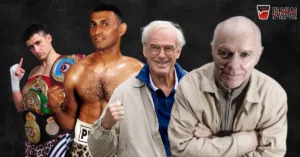Hepta 2 brings together a pretty hot lineup: Adam (Karim Fahmy), Sara (Menna Shalaby), Roone (Gehan ElShamashergy), Mai (Salma Abu Deif), Ammar (Karim Kassem), Osama (Mohamed Mamdouh), Farida (Mayan ElSayed), Mostafa (Hassan Malek), Mai’s Dad (Ashraf Abdelbaky), and Hesham Maged.
Together, they take us on a ride that combines technology, emotion, and a dose of Egyptian realism into a story about love in the era of AI.
A Film That Knows How to Look Good
From the first few scenes, you can tell this film looks good — really good. The cinematography is impressive, and every frame appears to be intentional. The lighting, the red tones, the shadows, and especially the cropped frame all make it clear this was made for the big screen.
Love, Broken Into Discoveries
The story unfolds through several “discoveries,” each revealing a new stage of love and connection. What stands out most is the balanced pacing. Each storyline has space to breathe, with transitions that flow naturally and meaningfully.
When Love Isn’t Entirely Human
Sara’s storyline, played by Menna Shalaby, carries deep emotional weight. She’s married — yet finds herself drawn to something that feels almost real: an AI companion portrayed by Hesham Maged. What begins as emotional escapism turns into a quiet exploration of loneliness and connection in the digital age.
At first, Maged’s role feels too playful for the film’s tone, but his dry humor and timing bring a much-needed balance. Their chemistry works in an oddly believable way, even though one of them is, well, an app.
The Kind of Chemistry You Can’t Fake
Adam (Karim Fahmy) brings the depth the film needs. He’s calm, observant, and quietly romantic — the kind of man who knows what he’s doing. His dynamic with Roone (Gehan ElShamashergy) feels real and lived-in. She’s sharp, grounded, and emotionally mature without needing to be loud.
Their relationship is complex: affection is mixed with frustration, and connection is combined with control. Both carry emotional baggage — Adam from his ex-wife (Passant Shawky) and Roone from her own complicated past. Their chemistry feels genuine, never forced, and it anchors the film.
Where It Hurts, It’s Real
Ammar (Karim Kassem) nails the role of the manipulative, toxic partner — the kind everyone has met in some form. His relationship with Mai (Salma Abu Deif) is frustrating to watch, which is exactly why it works. The lack of chemistry between them almost feels intentional, reflecting how emotionally disconnected toxic relationships can become.
The Weight of Expectations
Mai’s pregnancy and emotional exhaustion run parallel to Farida’s (Mayan ElSayed) struggles with guilt, family, and expectations. Farida’s story — alongside her grandmother (Mimi Gamal), who battles Alzheimer’s — brings in a more grounded, familial lens.
Her interactions with Mostafa (Hassan Malek), a YouTuber, are relatable but somewhat underdeveloped. Their story feels slightly detached from the main plot but still ties into the film’s recurring question: What does love look like under pressure?
Love, Logic, and Late-Night Conversations
For a film about AI, Hepta 2 never loses its emotional core. The humor appears when you least expect it, keeping the film relatable. The best scenes come from Sara’s conversations with Osama (Mohamed Mamdouh). Their debate about AI and love feels raw and authentic — like something you’d overhear in real life.
Osama’s character is that of a friend who disagrees with everything you believe, but still somehow makes sense. He grounds the story and reminds us what Hepta 2 is really asking: are we losing our ability to feel, or just finding new ways to do it?
Love, Egyptian-Style
There’s something deeply Egyptian about how the film approaches love and relationships. It doesn’t shy away from family dynamics, guilt, or societal pressure — all the things that shape how Egyptians experience love, even when the story revolves around futuristic themes.
When the Ending Doesn’t Quite Land
If there’s one place Hepta 2 stumbles, it’s the ending. It’s not bad — just too predictable and abrupt for a film that builds so much emotional tension. But it doesn’t undo what came before. The message remains clear: technology can simulate emotion, but it can never replace it.
So, Does Hepta 2 Live Up to the First?
It’s different — more introspective, less romanticized, and more daring with its questions. It may not hit as hard as the first film’s emotional crescendo, but it succeeds in creating something more self-aware.
Final Verdict
Hepta 2 isn’t trying to be perfect; it’s trying to be honest. And that’s what makes it work. It’s visually stunning, emotionally layered, and deeply human — a love story reimagined for the digital age.
Rating: 7/10 — A solid seven stars for its ambition, emotion, and elegance.






